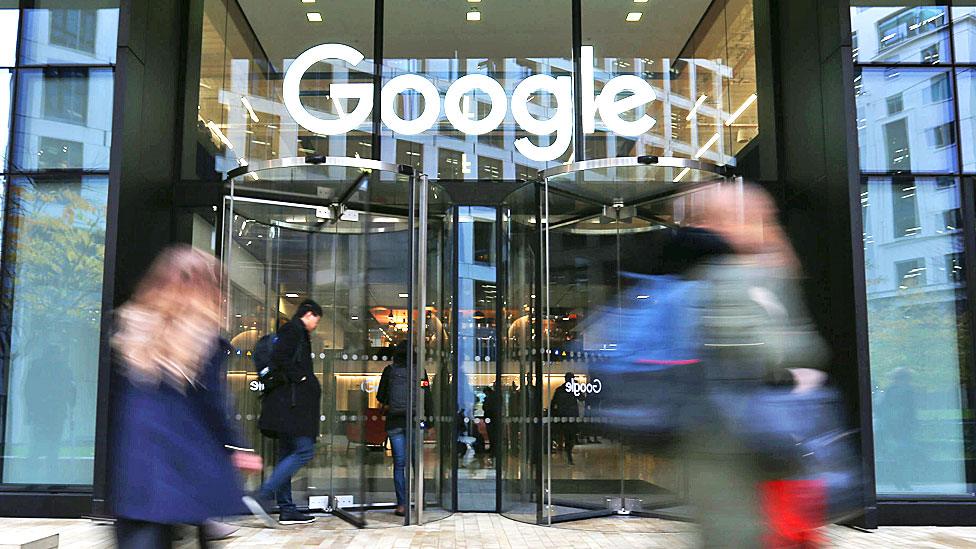Google鈥檚 tax bill rises to 拢50m
- Published

Google's office in London employs 3,280 people
Google will pay nearly 拢50m in tax to the Treasury this year.
The technology giant's annual accounts show that the company will pay corporation taxes of 拢49.3m on UK profits of 拢202.4m.
Although the tax figure is the highest the company has paid - and up on the 拢36.4m it paid last year - it will be likely to reignite the debate about taxation and digital firms.
The total value of Google's sales in the UK is about 拢5.7bn a year.
It only makes a profit on a small proportion of that activity because most of the intellectual value of its business - the software engineering - is created in America, where Google pays the vast bulk of its taxes.
Google UK also operates as a marketing and sales arm of its European operation which is headquartered in Dublin, where corporation taxes are lower.
It pays a substantial "administration fee" to its European parent to operate across Britain.
"As an international business, we pay the majority of our taxes in our home country, as well as all the taxes due in the UK," a spokesman said.
"We are investing significantly in the UK, including starting work on new offices in King's Cross [London] for 7,000 staff."
Britain's digital presence
Google's European headquarters is in Dublin
The accounts say that at present, Google employs 3,280 people in the UK, an increase of 340.
The government and the European Union are both looking at increasing the amount of tax that companies such as Facebook and Google pay.
Pierre Moscovici, the European Commissioner for tax affairs, told me last week that digital giants did not pay enough tax.
A Commission proposal published at the same time said that a new tax on revenues should be levied, raising up to 拢4bn across the EU.
A substantial proportion of that could come to Britain, which has one of the highest usage rates of digital companies.
A tax on revenues is also supported by the Treasury.
Mel Stride, the Treasury minister, told the 大象传媒 that it was the government's "preferred option".
"Double taxation" problems
Google's 2017 accounts show that it had revenues of 拢1.27bn a year in the UK between June 2016 and 2017, up from 拢1.03bn between 2015 and 2016.
A tax on those revenues would raise substantially more in the UK than the present 拢50m tax bill on its UK profits.
Technology companies make clear that they abide by all the tax laws and that extra taxes on their activities could lead to "double taxation" problems - taxes being charged in different countries for the same activity.
The US government has also made it clear that it takes a dim view of efforts in Europe to make a special case of large technology firms, many of which are based in Silicon Valley.
The Organisation for Economic Co-operation and Development, the international body charged with proposing new global tax rules for companies, has also warned about the dangers of "tax wars" as different countries apply different tax rates to companies.
Mr Moscovici said that he wanted EU agreement on the new revenue tax "by the end of the year", which many people believe is over-ambitious, given that countries such as Ireland have opposed the move.
The UK's policy could be announced in the Budget in the autumn.